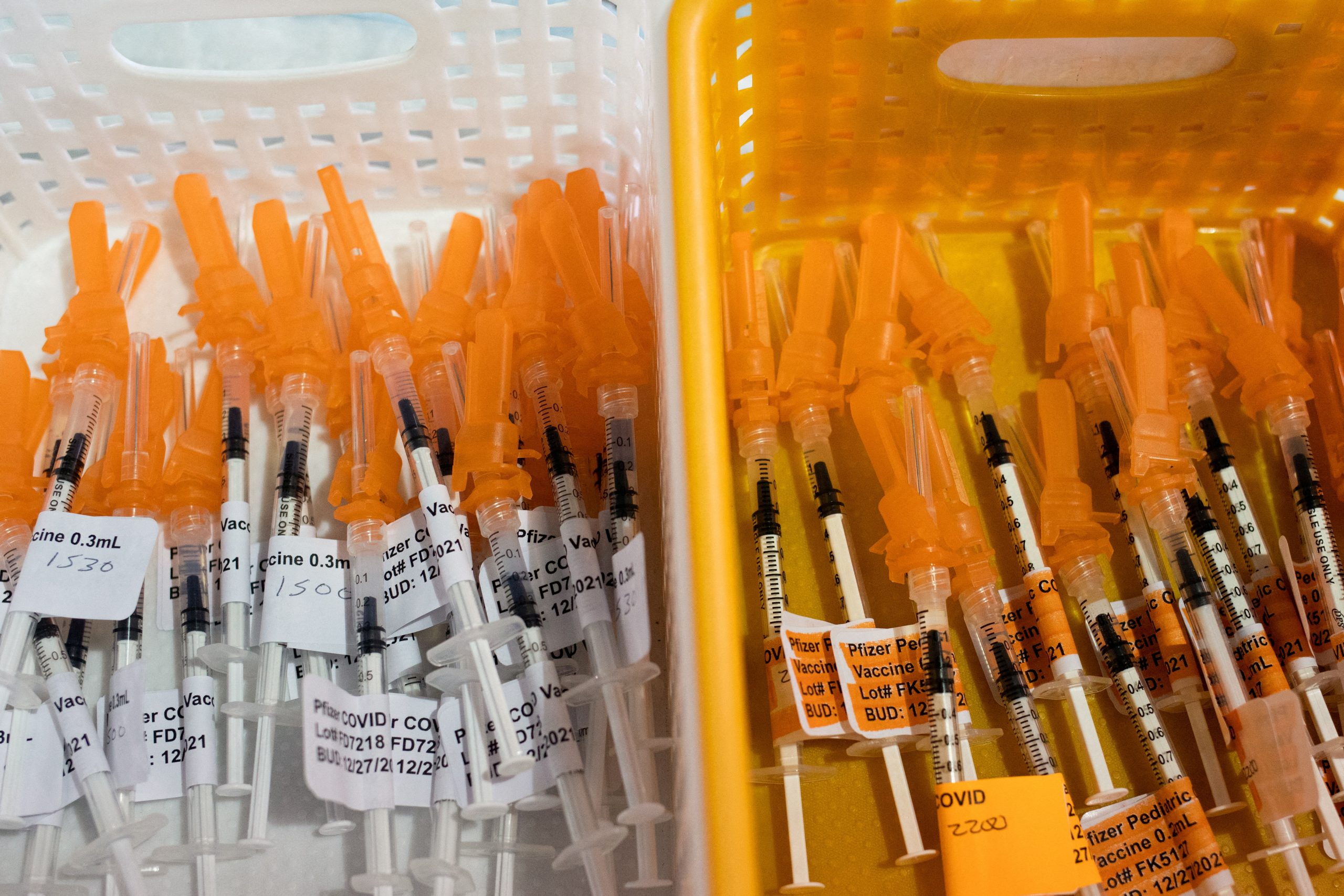
Lauren Dempsey, MS in Biomedicine and Law, RN, FISM News
[elfsight_social_share_buttons id=”1″]
Earlier this week Pfizer and BioNTech announced that the U.S. Food and Drug Administration (FDA) has granted an emergency use authorization (EUA) to allow children 6 months through 4 years of age to receive a single booster dose of the companies’ bivalent vaccine.
The booster can be administered at least 2 months after primary vaccination with three doses of the original COVID-19 vaccine and is meant to target omicron variants BA.4 and BA.5.
The FDA noted that children who received the omicron shot as their third dose aren’t eligible for the bivalent booster as a fourth dose at this time. The agency claims that the boost vaccines “will provide an immune response that is broadly protective” against COVID-19 infections.
In an FDA news release, the director of the FDA’s Center for Biologics Evaluation and Research Dr. Peter Marks said, “Today’s authorization provides parents and caregivers of children 6 months through 4 years of age who received the three-dose primary series with the monovalent Pfizer-BioNTech COVID-19 Vaccine an opportunity to update their children’s protection by receiving a booster dose with the Pfizer-BioNTech COVID-19 Vaccine, Bivalent.”
According to an analysis by the American Academy of Pediatrics (AAP), 2 million children in the United States aged 6 months to 4 years old have received at least one dose of the COVID-19 vaccine which represents about 12% of children in this age range. The AAP and government agencies continue to recommend routine vaccination for children as a preventative measure.
Marks reiterated such claims in the FDA announcement.
“Currently available data show that vaccination remains the best defense against severe disease, hospitalization, and death caused by COVID-19 across all age groups, and we encourage all eligible individuals to make sure that their vaccinations are up to date with a bivalent COVID-19 vaccine,” Marks claimed.
LACK OF LONG-TERM SAFETY DATA
However, a number of experts find the FDA’s most recent decision disturbing. Dr. Peter McCullough, an outspoken critic of COVID-19 vaccines for children told The Defender that the “long-term safety of accumulating novel mRNA and Wuhan spike protein in previously healthy children” was concerning, adding that “continued shots are not natural and cannot make their bodies healthier.”
Others have voiced concerns over the lack of data showing that the vaccines are safe or effective, instead pointing to evidence that the vaccines do not work to prevent infection or transmission and are known to cause significant adverse events.
Mary Holland, president and general counsel of Children’s Health Defense called the decisions “simply obscene,” while Dr. Michelle Perro, a pediatrician with more than 4 decades of experience said the FDA’s decision is “nothing short of pediacide.”
WHAT DOES THE LIMITED DATA SAY?
According to data from the CDC, children under 5 years old face the least risk of illness, hospitalization, and death when compared to all other age groups.
The available data that the agency analyzed was provided by Pfizer-BioNTech from a clinical trial that was divided into four subsets to evaluate safety and efficacy in different age groups, however it was not available to the public and the trial is not expected to end until 2025. Three of the groups included children aged 6 months to 4 years old. The FDA analyzed data for 60 children who had completed the three-dose vaccine series and received a booster shot.
The results from this small cohort were similar to that of the original COVID-19 vaccine and concludes that the benefit of vaccination outweighs the potential risks. Initial clinical trials showed that COVID-19 vaccines were 80% effective against Omicron, but durability wanes significantly within 4 months.
The FDA also looked at a clinical trial that evaluated children aged 6 months to 11 years old who also received the primary three-dose series and an additional bivalent booster COVID-19 vaccine. According to the agency, these study results as well as postmarketing safety data indicate that the vaccines are safe.
COMMON SIDE EFFECTS
The most common symptoms for a group of 24 participants aged 6 months through 23 months were irritability, drowsiness, injection site redness, pain and swelling, decreased appetite, fatigue, and fever. In a second group of 36 participants between 2 and 4 years old, the side effects included fatigue, injection site pain, redness and swelling, diarrhea, vomiting, headache, joint pain, and chills.
Pfizer-BioNTech has also submitted an application to the European Medicines Agency (EMA) to include vaccine use in children 6 months through 4 years of age as a primary series of three vaccines and a fourth dose as a booster. The bivalent vaccine is currently authorized in the European Union (EU) as a booster dose for individuals 5 years and older.
